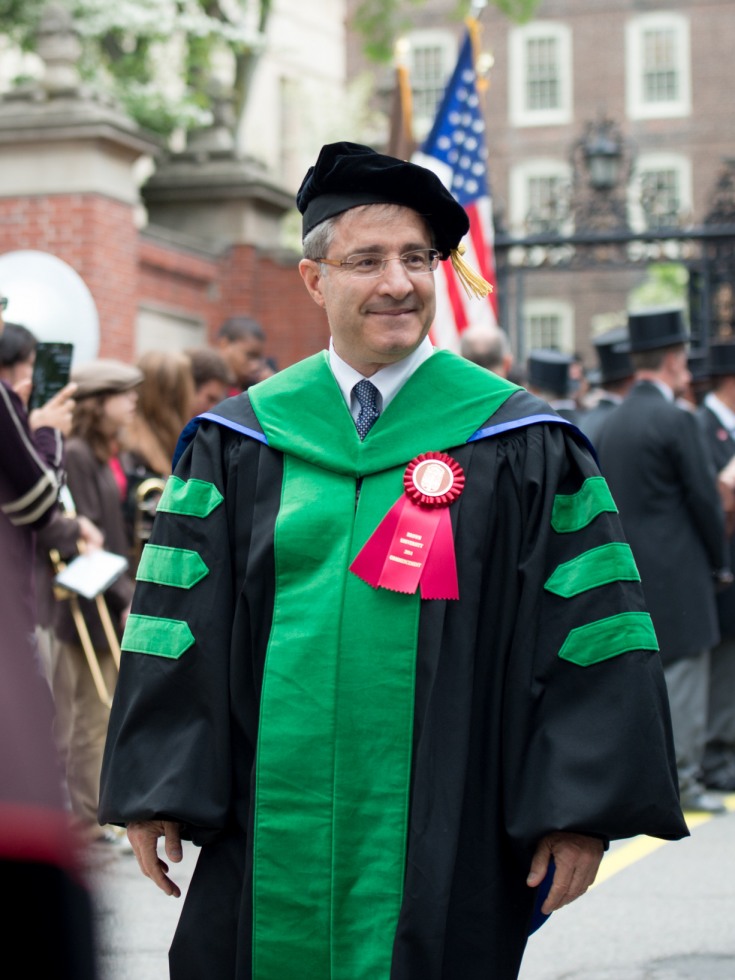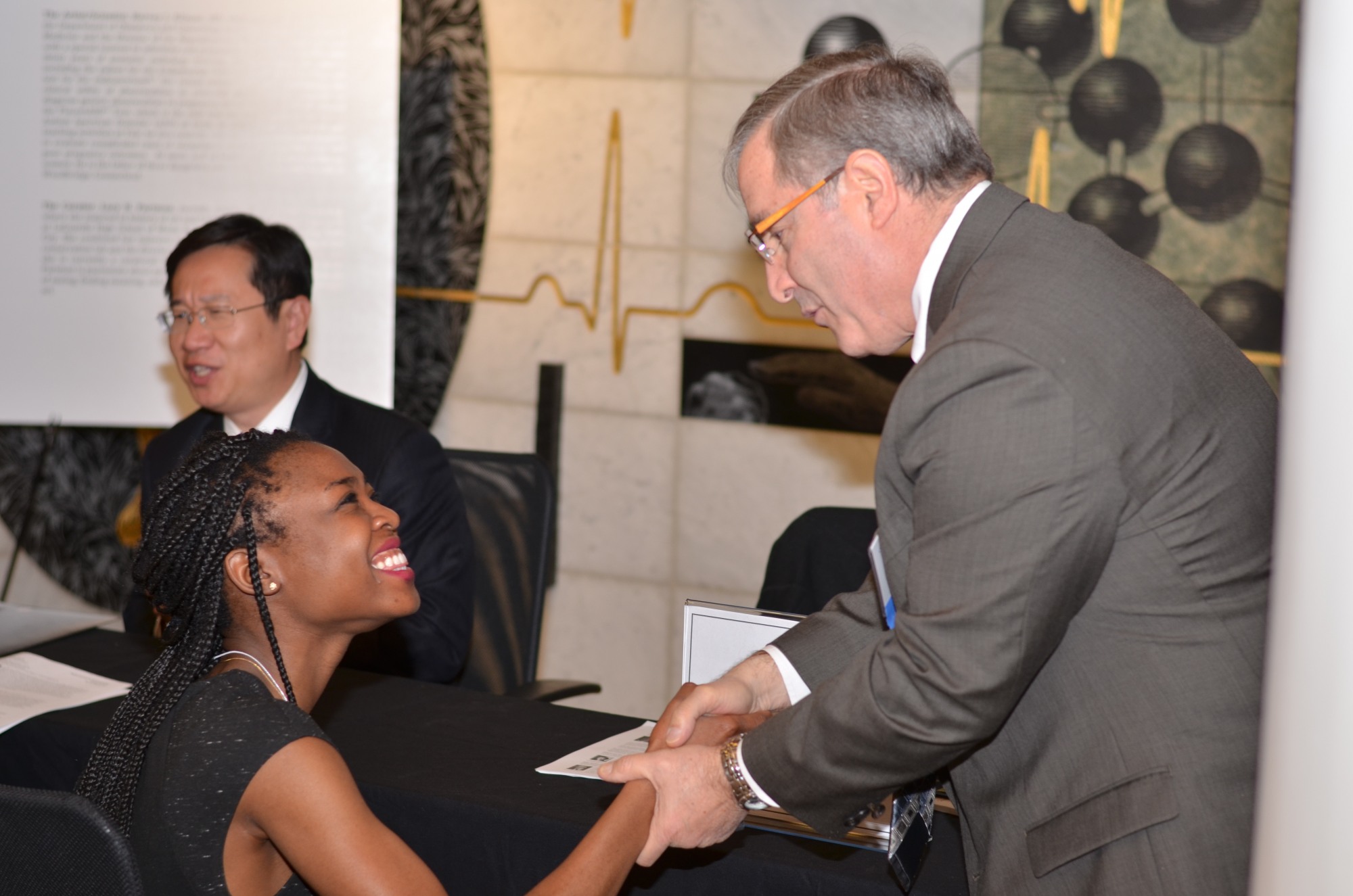At the same time, Elias expanded Brown’s clinical practice and the University’s relationships with physician groups and affiliated health systems. This laid the foundation for the work he’ll build upon in his new position working with leaders at Care New England and Lifespan, according to Provost Richard M. Locke.
“Jack will play an essential role in furthering the relationship with the health systems to integrate medical innovation and pioneering research to inform clinical care in such areas as cancer, women’s health, and brain diseases like Alzheimer’s and ALS,” Locke said. “These are all areas where Brown has expertise and Jack has deep experience. He has provided leadership in all discussions and arrangements regarding research and teaching activities involving Brown University and its clinical faculty and current affiliated hospital partners.”
Elias is expected to advise the president and provost in enhancing of the coordination of medical education and research with clinical practice across the merged system’s hospitals.
“I am very excited to play a part in helping to do for Rhode Island what academic health systems have done for Boston, Pittsburgh and other cities across the country,” Elias said. “One of the things I talk about is the dream that the next dean will look out the window of the dean's suite at 222 Richmond and see a mass of biotech companies in the Jewelry District, all of which are making new products based on Brown, Lifespan or Care New England intellectual property, and all of them employing people and turning Rhode Island into a biotech hub.”
“There's no reason that biotech is booming in Boston and stops at the Rhode Island border,” Elias added.
A record of accomplishment
A physician-scientist specializing in immunobiology and pulmonary and critical-care medicine, Elias arrived at Brown to serve as the seventh dean in biology and medicine in September 2013. He continued to serve as dean while being appointed to the new position of senior vice president for health affairs in May 2017.
Locke said the inaugural appointment recognized the growing importance and complexity of academic medicine and health sciences at Brown, and in the state and the region.
“Jack spearheaded the development of a strategic plan that established a path of concrete actions necessary to advance the academic excellence of the Warren Alpert Medical School and biology at Brown, as well as the relationships among our campus and community stakeholders.”
In 2015, Elias formed the Brown Institute for Translational Science (BITS), establishing numerous research teams within BITS as part of a major restructuring of research areas in the medical school. These include the Brown Center for Biomedical Informatics; Center on the Biology of Aging; program in Vaccine Biology and Global Health; joint programs with Lifespan in cancer biology and the Center for Digital Health; and the Center for Translational Neuroscience with the Carney Institute for Brain Science, among others.
Elias also launched Brown Biomedical Innovations to Impact (BBII), a “proof of concept” commercialization and entrepreneurial fund that is designed to bridge the gap between federal funding for research and private investment in a product, drug or biologic. In addition, last year he oversaw the formation of Brown’s new Cancer Center dedicated to research and clinical developments. An outgrowth of the Joint Program in Cancer Biology previously established by Brown and Lifespan, the center is focusing efforts on world-class research, developing new therapeutics and addressing patients’ unique needs.
“With BBII, the Cancer Center and other programs, we have the chance to really do something significant in terms of improving patient care, integrating patient care, taking the region to the next level in terms of research and teaching, and being an economic engine,” Elias said.
Building investment in the programs in medicine and biology has been a central part of Elias’ efforts. Under his leadership, the Division of Biology and Medicine has raised more than $222 million through the BrownTogether fundraising campaign. This includes 19 endowed professorships, which give Brown the means to attract and retain the best teachers and scholars. Research funding increased from almost $37 million in Fiscal Year 2013, the year that Elias arrived at Brown, to $95 million in the most recently completed 2020 fiscal year.
Elias has worked to strengthen the medical school community through mentoring and training programs, including re-launching Brown’s M.D./Ph.D. program with a $27 million gift from the Warren Alpert Foundation. The medical school also established the Gateways to Medicine, Health Care and Research master’s program to prepare students for medical school or careers in health care. Numerous clinical and biology department chairs were recruited during Elias’ tenure, and student recruitment and retention initiatives have resulted in an increasingly diverse student body. About 25% of Brown’s medical school students now come from backgrounds that are historically underrepresented in medicine.
Fulfilling an early goal to form an academic health system
Elias said the body of his work in the Division of Medicine and Biology — and the improved strength of the academic, research and clinical program — has helped lead him to the new role he will assume as senior health advisor to the president and provost.
He had a vision for Brown becoming part of an integrated academic health system from the time he first interviewed for the deanship in Providence. He was serving as chair of internal medicine at the Yale School of Medicine and physician-in-chief at Yale New Haven Hospital at that time.
“I remember driving back from Providence to New Haven and passing a billboard advertising Boston cardiologists who were coming into Rhode Island to care for patients,” Elias said. “I remember saying to myself, ‘Why would that be? The hospitals, the physicians, the research — we could all work together to do it all locally.’ So I’ve had the dream of bringing everybody together since my first days at Brown.”

